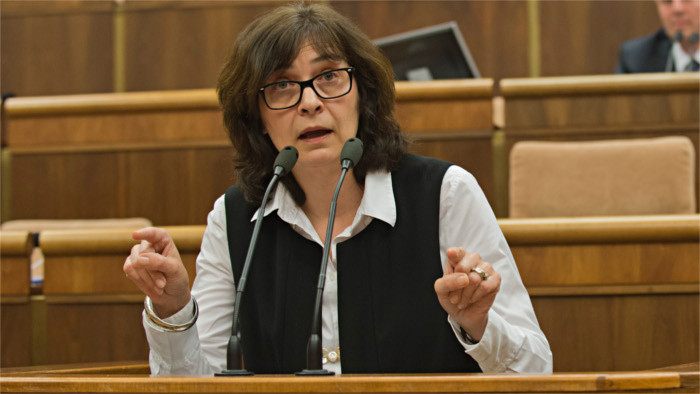The proposal to introduce extraordinary measures to resolve a situation in which 3.7 million distraint proceedings have been registered in courts has already created a heated debate even if concrete details are not known. On Monday Justice Minister Lucia Žitňanská (Most-Hid) presented a draft proposal to coalition partners but refuses to speak publicly in advance of the details of the planned so-called distraint amnesty because, "they can set expectations that aren't realistic. Liabilities must be paid, but at the same time we should try to resolve a situation that has grown out of control. This is simply a fact," she said.
Around 968,000 people faced forced debt collection in Slovakia by last October, according to the Slovak Chamber of Debt Collectors. Its president, Miroslav Paller, thinks that introducing an amnesty for these people will send a negative signal to society that it is all right to speculate on one's financial commitments and wait for another solution rather than be responsible for honouring one's own obligations. The supporters of the amnesty argue that it is necessary to save people from a spiral of debt from which they are unable to exit on their own. This often pushes them towards the black labour market in order to hide their income from debt collectors.
On Wednesday the opposition party Freedom and Solidarity (SaS) said it would prepare its own solution to the issue by attempting to shift the future costs of distraint proceedings from debtors to creditors by law. The liberals think that in this way they will eliminate the high-risk behaviour on the part of creditors, as they'll pay closer attention to whom they lend money. They won't support a distraint amnesty that would only encourage hazardous behaviour in society, and it believes that no citizen of Slovakia can be stripped of their financial commitments by Government decree, as that would encourage further irresponsible behaviour and the accumulation of larger debts. The distraint amnesty has been a top electoral promise of the opposition party 'We are family' whose leader Boris Kollár has said that they will "support every proposal that will help people".


